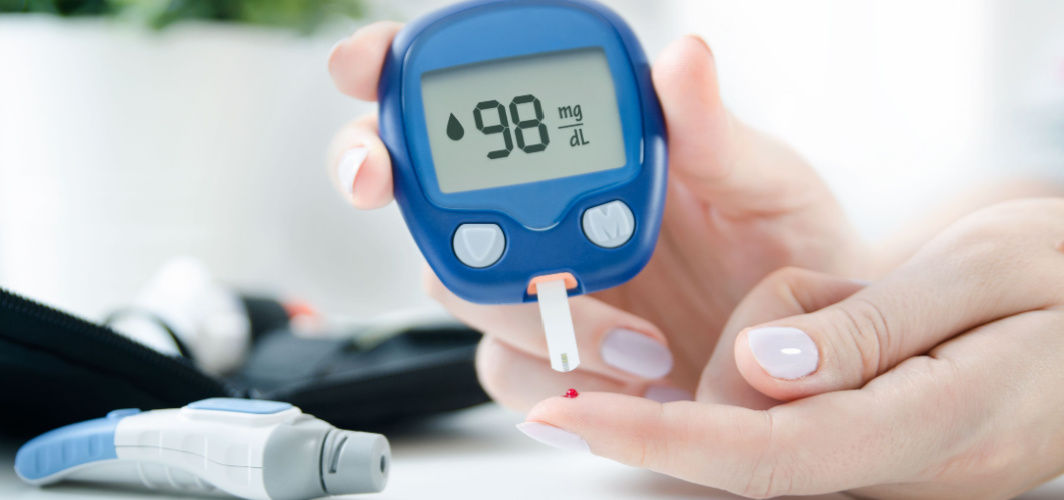Diabetes Management
Blood Sugar Monitoring: Is it Important?
3 min read
By Apollo 24|7, Published on - 13 September 2023, Updated on - 22 February 2024
Share this article
0
0 like

Blood sugar monitoring is a critical aspect of managing your health, especially if you have diabetes or are at risk of developing it. This practice involves regularly measuring your blood glucose levels to understand how your body processes sugar. In this blog, we'll delve into the significance of blood sugar monitoring, its impact on your overall well-being, and why it's vital to make it a part of your routine.
What is Blood Sugar?
Before we explore the importance of blood sugar monitoring, let's understand what blood sugar (glucose) is and why it matters. Glucose is a type of sugar that comes from the food we eat and serves as a primary energy source for our cells. However, too much or too little glucose in the bloodstream can lead to health issues.
Why Is Blood Sugar Monitoring Important?
Blood sugar monitoring is important for gaining insights about your overall health and to help you make informed decisions about your diet, medication and lifestyle choices.
- Personalized Management: Monitoring allows you to understand how your body responds to food, physical activity, medication, and other factors. This knowledge enables you and your healthcare provider to create a personalized diabetes management plan.
- Preventing Complications: High blood sugar levels over time can lead to serious complications such as heart disease, kidney problems, nerve damage, and vision impairment. Monitoring helps you take timely action to prevent these issues.
- Adjusting Medication: If you're on diabetes medication, monitoring helps you and your healthcare provider determine if your current treatment plan is effective. Adjustments can be made if necessary to maintain optimal blood sugar levels.
- Lifestyle Modification: Blood sugar monitoring provides insights into the impact of your lifestyle choices. You can make informed decisions about your diet, exercise routine, and stress management to better control your blood sugar.
Quality of Life:
- Stable blood sugar levels contribute to an improved quality of life.
- You'll have more energy, experience fewer fluctuations in mood and energy, and reduce the risk of diabetes-related complications that can diminish your well-being.
Incorporating Blood Sugar Monitoring into Your Routine
To make blood sugar monitoring a seamless part of your life:
- Invest in a Glucometer: Purchase a reliable glucometer and test strips for at-home monitoring.
- Follow a Schedule: Work with your healthcare provider to establish a testing schedule that suits your needs.
- Record and Analyze Results: Keep a record of your blood sugar readings and share them with your healthcare team for better guidance.
Conclusion
Blood sugar monitoring is a powerful tool for taking control of your health. By regularly monitoring your blood sugar levels, you can detect issues early, personalize your management plan, prevent complications, and lead a healthier, more fulfilling life.
Diabetes Management
Consult Top Diabetologists
View AllLeave Comment
Recommended for you

Diabetes Management
Can Coffee Reduce The Severity Of Liver Disease In People With Type 2 Diabetes?
There is emerging evidence suggesting that coffee consumption may reduce the severity of liver disease in individuals with type 2 diabetes. Coffee's antioxidant and anti-inflammatory properties, as well as its potential to lower liver enzyme levels, are believed to contribute to these effects. However, further research is needed to establish the precise mechanisms and optimal coffee consumption guidelines for liver health in this population.
.jpg?tr=q-80)
Diabetes Management
The Connection Between Type 3 Diabetes and Alzheimer's Disease
Type 3 Diabetes, an intriguing connection between diabetes and Alzheimer's disease, presents unique challenges. However, understanding its link with Alzheimer's and Type 2 diabetes can offer insights into effective management. Therapies focusing on insulin resistance and metabolic pathways show promise, highlighting the importance of a comprehensive approach to diabetes management that can make all the difference.

Diabetes Management
Adding Vibrant Colours to Your Plate: Diabetic-Friendly Holi Guide
In the spirit of the colourful festival Holi, adding a variety of vibrant fruits and vegetables to your meals can enhance nutritional diversity. From red strawberries and orange carrots to green broccoli and blueberries, these foods provide essential vitamins, antioxidants, and phytonutrients that can promote overall health and help with diabetes self-management.
Subscribe
Sign up for our free Health Library Daily Newsletter
Get doctor-approved health tips, news, and more.
Visual Stories

8 Fruits That are Incredibly Healthy for Diabetes
Tap to continue exploring
Recommended for you

Diabetes Management
Can Coffee Reduce The Severity Of Liver Disease In People With Type 2 Diabetes?
There is emerging evidence suggesting that coffee consumption may reduce the severity of liver disease in individuals with type 2 diabetes. Coffee's antioxidant and anti-inflammatory properties, as well as its potential to lower liver enzyme levels, are believed to contribute to these effects. However, further research is needed to establish the precise mechanisms and optimal coffee consumption guidelines for liver health in this population.
.jpg?tr=q-80)
Diabetes Management
The Connection Between Type 3 Diabetes and Alzheimer's Disease
Type 3 Diabetes, an intriguing connection between diabetes and Alzheimer's disease, presents unique challenges. However, understanding its link with Alzheimer's and Type 2 diabetes can offer insights into effective management. Therapies focusing on insulin resistance and metabolic pathways show promise, highlighting the importance of a comprehensive approach to diabetes management that can make all the difference.

Diabetes Management
Adding Vibrant Colours to Your Plate: Diabetic-Friendly Holi Guide
In the spirit of the colourful festival Holi, adding a variety of vibrant fruits and vegetables to your meals can enhance nutritional diversity. From red strawberries and orange carrots to green broccoli and blueberries, these foods provide essential vitamins, antioxidants, and phytonutrients that can promote overall health and help with diabetes self-management.
